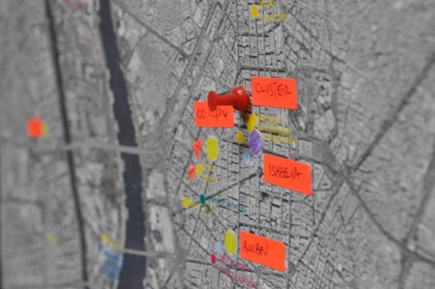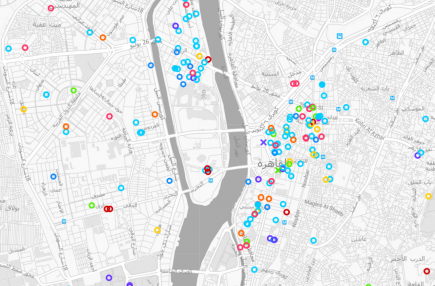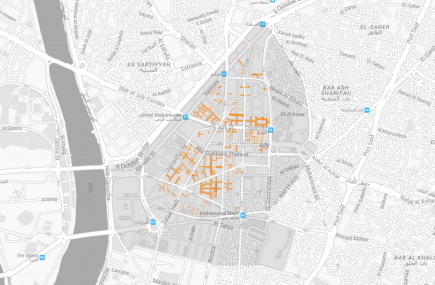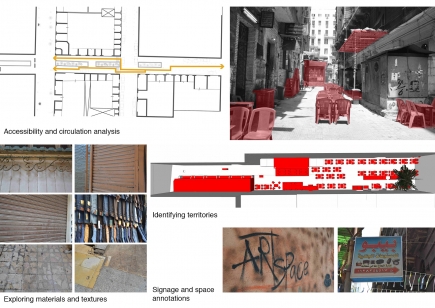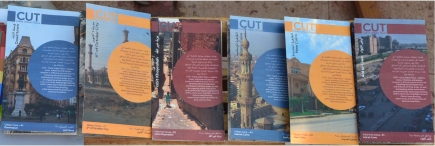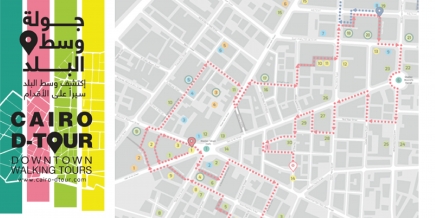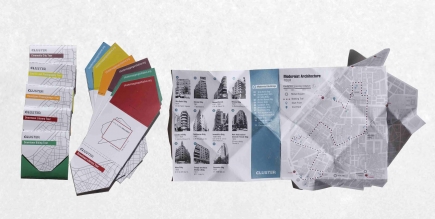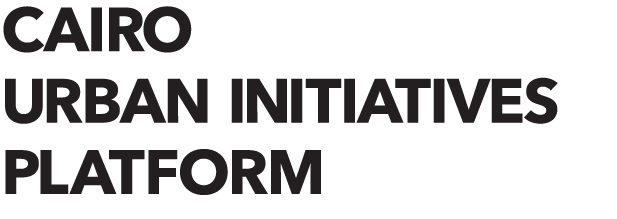| Type: | |
| Areas of Focus: | |
| Activities: | |
| Website: | http://www.c-sds.org |
| Email: | hussein.m.abaza@gmail.com |
| Phone: | +2 0127 444 27 98 |
Please note that there is no recent update for this initiative.
As a not for profit organization the Centre for Sustainable Development Solutions (CSDS) aims at providing technical advice to policy makers and practitioners for greening the economy as a tool for achieving sustainable development and poverty reduction.
Main Objectives
The Centre for Sustainable Development Solutions (CSDS) was founded in 2011 in Egypt with the main objectives of promoting sustainable development, with particular focus on Egypt and the Middle East. It aims to achieve this objective through technical support, research, training, and public awareness.
Main Areas of Concentration
Sustainable Agriculture
Water Conservation
Green, High Performance Buildings
Solid Waste Management
Trade and Environment
Activities
Action oriented studies and research
Technical assistance through guidance and country projects
Convening workshops, policy dialogues and seminars
Training and public awareness
Main Areas of Expertise
Green Economy as a tool for achieving sustainable development
Integrated and Sustainable Development
Use of Economic Instruments
Economic valuation of the environment
Design, consulting, and life cycle cost analysis of green energy efficient High Performance Buildings
Main Activities
Since its creation in 2011 CSDS was involved in a number of activities in the region. These included the production of the 2012 Annual Report 4 of the Arab Forum for Environment and Development (AFED) entitled "Green Economy, Sustainable Transition in a Changing Arab World; prepare a chapter on "Green Transformation" for the Egyptian National Competitiveness Council (ENCC) 2011 publication; prepared a study entitled "Case studies of Best Practices for Green Investment" for the Centre for Environment and Development for the Arab Region and Europe Countries (CEDARE); prepared a study for the United Nations Environment Programme, Regional Office for Western Asia on the Role of Civil Society in promoting Green Economy; prepared a study on the Role of Civil Society for Sustainable Development and Green Economy in the Arab World; participated and made presentations in a series of national, regional, and international workshops and events on sustainable development and "Green Economy".
Current and most recent activities include providing technical advice to a number of international, regional and national institutions on environmental economics and Green Economy. These include, the the United Nations Environment Programme (UNEP); The UN Economic Social Commission for Western Asia (ESCWA), International Labour Organization (ILO), the United Nations Development Programme (UNDP), the Center for Environment and Development for the Arab Region and Europe (CEDARE); the Arab Forum for Environment and Development (AFED); and the Egyptian National Competitiveness Council (ENCC). Published and contributed in the publication of a series of publications on environmental and integrated assessment, the interface between trade and environment, valuation of environmental and natural resources, the use of economic instruments for environmental management, and Green Economy.
Extensive experience in HVAC design, Energy Modeling, Energy Auditing and Facility Assessments, HVAC construction project management and costing. Projects worked on ranged from commercial buildings and schools to high end residential buildings, private residences and hotels. Primary area of specialty is HVAC design, Energy Modeling, Energy Auditing and Facility Assessments of “green” energy efficient buildings. Responsible for advising clients, design and construction team on “green” and energy efficient design and construction best practices, incorporating renewable energy implementation, investigating financial, environmental and social impacts. The goal is to ensure that our clients are not only "green" but also operating in the "green". We primarily focus on low cost/no cost Energy and Water conservation measures that demonstrate the lowest payback period and highest return on investments.
Main Collaborating Institutions
United Nations Development Programme (UNDP), United Nations Environment Programme (UNEP), United Nations Economic and Social Commission for Western Asia (ESCWA), International Labour Commission (ILO), European Commission, Centre for Environment and Development (CEDARE), Arab Forum for Environment and Development (AFED), GIZ, Egyptian National Competitiveness Council (ENCC), Euro-Mediterranean Agency (EMA), SWEEP-Net, SEKEM, and NAWAYA.
Hussein Abaza (Founder) B.A in Economics from the American University in Cairo (1973), and M.Phil. in Urban Housing planning from the University of Bradford (1981). Joined the United Nations Environment Programme (UNEP) in 1982, and worked in different capacities. These included: Chief of the Economics and Trade Branch (March 97 to 30 November 2009), Chief of the Environment and Economics Unit (January 93 to February 97), Coordinator of the Committee of International Development Institutions on the Environment (CIDIE) (March 91 to December 92), Assistant to the Executive Director of UNEP (June 89 to February 91), Coordinator of the African Ministerial Conference on the Environment (AMCEN) (March 88 - June 89). Prior to joining UNEP, worked as the Financial and Administrative Manager of a United Nations Physical and Urban Planning project in Saudi Arabia (1973-1979), Managing Director of the Center of Planning and Architecture in Cairo, Egypt (1980), and Manager of the Islamic Investment Company, Central and Northern Region, Saudi Arabia (1981).
The Publications (link) section provides current and past work related to sustainable development.
